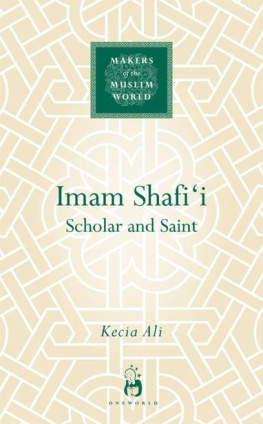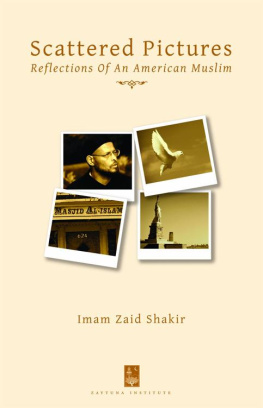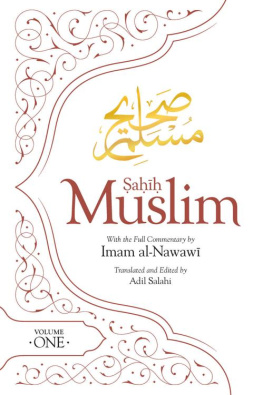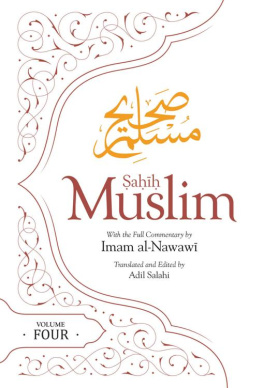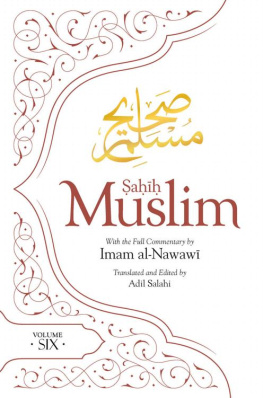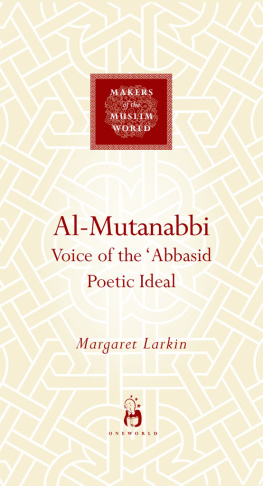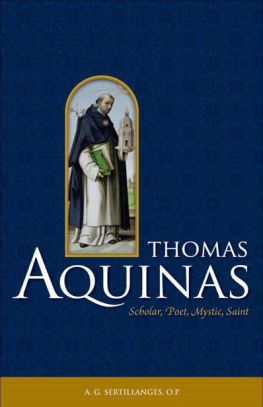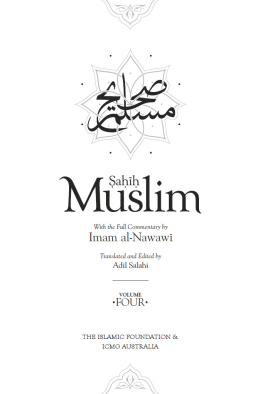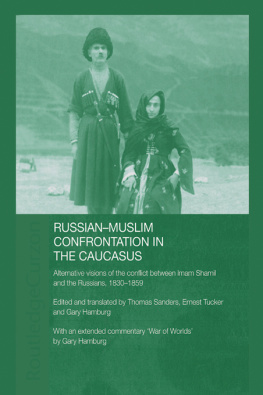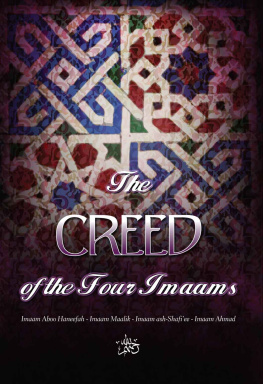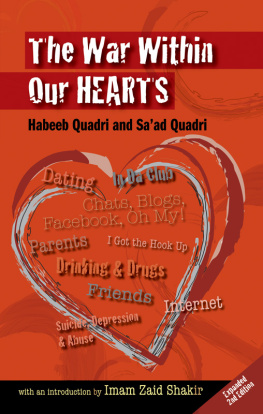MAKERS
of the
MUSLIM
WORLD
Imam Shafii
TITLES IN THE MAKERS OF THE MUSLIM WORLD SERIES
Series Editor: Patricia Crone, Institute for Advanced Study, Princeton
Abd al-Ghani al-Nabulusi, Samer Akkach
Abd al-Malik, Chase F. Robinson
Abd al-Rahman III, Maribel Fierro
Abu Nuwas, Philip Kennedy
Ahmad al-Mansur, Mercedes Garca-Arenal
Ahmad ibn Hanbal, Christopher Melchert
Ahmad Riza Khan Barelwi, Usha Sanyal
Akbar, Andr Wink
Al-Mamun, Michael Cooperson
Al-Mutanabbi, Margaret Larkin
Amir Khusraw, Sunil Sharma
Ashraf Ali Thanawi, Muhammad Qasim Zaman
Chinggis Khan, Michal Biran
El Hajj Beshir Agha, Jane Hathaway
Fazlallah Astarabadi and the Hurufis, Shazad Bashir
Ghazali, Eric Ormsby
Hasan al-Banna, Gudrun Krmer
Husain Ahmad Madani, Barbara Metcalf
Ibn Arabi, William C. Chittick
Ibn Fudi, Ahmad Dallal
Ikhwan al-Safa, Godefroid de Callatay
Imam Shafii, Kecia Ali
Karim Khan Zand, John R. Perry
Mehmed Ali, Khaled Fahmy
Muawiya ibn abi Sufyan, R. Stephen Humphreys
Muhammad Abduh, Mark Sedgwick
Nasser, Joel Gordon
Nazira Zeineddine, miriam cooke
Sadi, Homa Katouzian
Shaykh Mufid, Tamima Bayhom-Daou
Usama ibn Munqidh, Paul M. Cobb
For current information and details of other books in the series, please visit www.oneworld-publications.com
MAKERS
of the
MUSLIM
WORLD
Imam Shafii: Scholar and Saint
KECIA ALI
IMAM SHAFII
A Oneworld Book
Published by Oneworld Publications 2011
This ebook edition published by Oneworld Publications 2011
Copyright Kecia Ali 2011
All rights reserved
Copyright under Berne Convention
A CIP record for this title is available
from the British Library
ISBN 9781780740041
Typeset by Jayvee,Trivandrum, India
Oneworld Publications
185 Banbury Road
Oxford OX2 7AR
England
Learn more about Oneworld. Join our mailing list to find out about our latest titles and special offers at:
www.oneworld-publications.com
Biographies are full of verifiable facts, but they are also full of things that arent there:absences, gaps, missing evidence, knowledge or information that has been passed from person to person, losing credibility or shifting shape along the way. Biographies, like lives, are made up of contested objects relics, testimonies, versions, correspondences, the unverifiable.
Hermione Lee, Virginia Woolfs Nose
That biography is a species of fiction-making is a truth so old that only a willed cultural amnesia can make it new.
Marjorie Garber in Mary Rhiel and David Suchoff, eds,
The Seductions of Biography
CONTENTS
ACKNOWLEDGEMENTS
V incent Cornell introduced me to Shafii and his Risala in a graduate seminar in 1997; it was not love at first page. But when I was invited to contribute a biography to this series, I recklessly proposed Shafii, whose writings on positive law had entranced me in my research on marriage and about whose life I knew almost nothing. Since then, Emad Adly, Jonathan Brockopp, Ahmed El Shamsy, Kevin Jaques, Joseph Lowry, Christopher Melchert, Kevin Reinhart, and David Vishanoff have discussed Shafiis ideas and writings and tangled life story with me, suggested important sources, and shared forthcoming publications. The bibliography imperfectly indicates my numerous debts to them. Patricia Crone, Anver Emon, and Oneworlds anonymous reader provided thorough and thoughtful comments on the entire manuscript, and saved me from mistakes and misjudgments. Oneworlds Paul Boone shepherded the project through numerous delays and Sophie Richmond provided meticulous copyediting. None of these people bears any blame for remaining errors, of which I hope there are few, or inadequacies, of which I am sure there are many. I also owe thanks to my research assistant Matthew Pierce, who hunted down obscure Orientalist publications and put order to towering piles of photocopies; Emine Fetvaci, who provided a wonderful illustration; and Mara Worle and Amr Ragy, who hosted me during a visit to Cairo where I visited Shafiis tomb. In addition to drawing my attention to a useful article, Malik Khan of the Islamic Center of Boston Wayland invited me to speak to the congregation during Ramadan 2007 about Shafiis thought. It is to the members of that community, engaged in a collective struggle to live according to Gods plan and disagreeing, sometimes profoundly, over what that entails that this book is dedicated.
INTRODUCTION
H ow should Muslims live? In accordance with Gods law. How can one know Gods law? First and foremost through the Quran. But the Quran, though expansive, is not exhaustive. People need supplementary guidance. The most widely accepted source for additional guidance is the Prophet Muhammads model or sunna. Beyond his role as a conduit for Gods speech, Muhammads conduct as a man and as leader of an exemplary community carries weight. Within a couple of centuries of his death, reports about his words and deeds, known as hadith, came to play a vital role in preaching, moral instruction, scriptural commentary, and most significant for purposes of this story lawmaking. The central role of prophetic sunna in legal theory is in large part due to the work of Muhammad ibn Idris al-Shafii. Shafii lived from 150/767 to 204/820, when Islamic law was in its formative stages. He was preoccupied with the question of how to derive rules for conduct from Gods communication to humanity. The now-besieged notion of the partnership of Quran and sunna, which structured Sunni thinking for more than a millennium, largely derives from his intellectual labor. One must understand his ideas and their impact to understand Islamic law.
Until recently, conventional wisdom has held that Shafiis Risala or Epistle, a treatise on legal theory, offered a solution to the dichotomous thinking that plagued his contemporaries. According to this view they were hopelessly divided between traditionalists and partisans of opinion. The former, often identified with Medina, were intent on strictly applying precedent of the Prophet or his Companions, those Muslims who had known him personally. The latter, associated with Iraq, were advocates of reasoned opinion or ray, and allowed individual discretion in judgment a surefire path to interpretive chaos, in the view of some. Neither position was tenable, given competing needs to establish predictable rules that respected religious sources while also responding to changing conditions of life in the rapidly expanding Abbasid Empire. Shafii the

